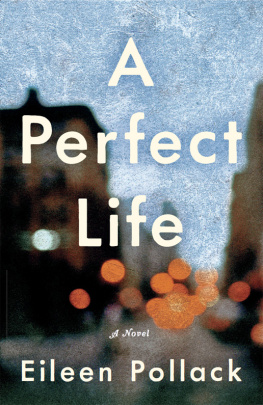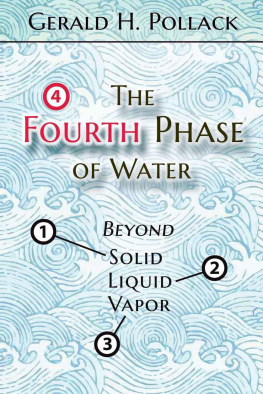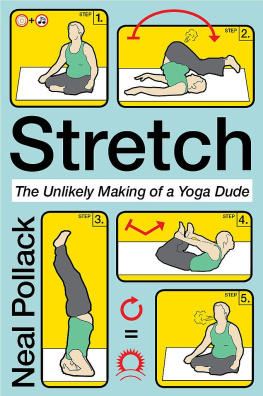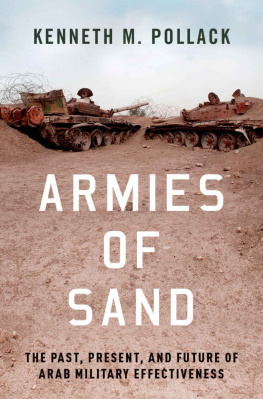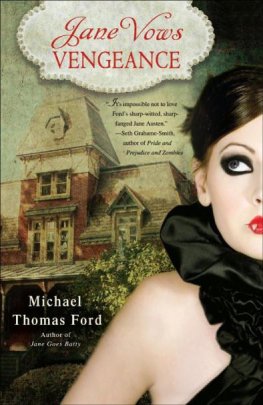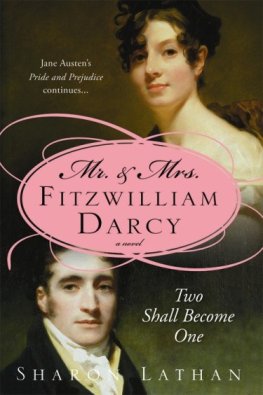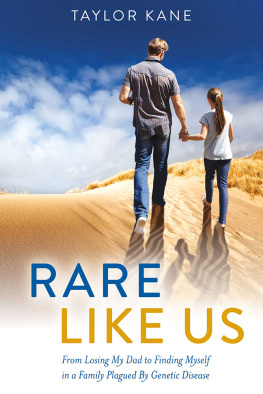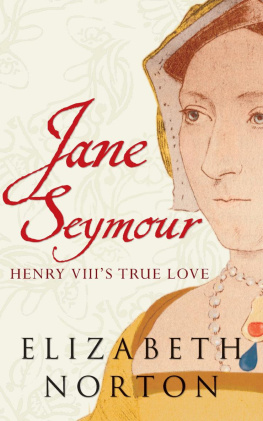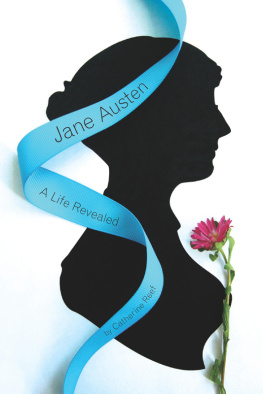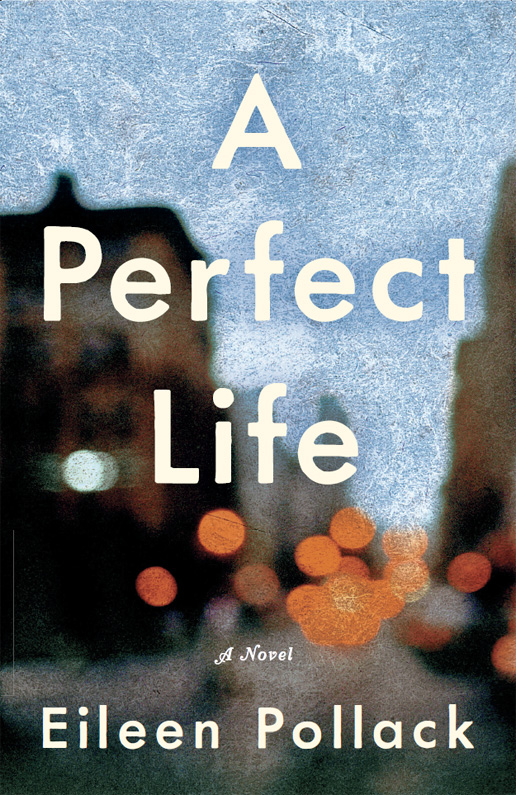In another few minutes, I will need to climb the stairs and explain to my daughter why her father and I gave her life when we knew she would need to live it watching the clock, watching herself. Maybe Lila wont hold her fate against me any more than I held my fate against my parents. But then, I was older. I knew they had acted out of ignorance. And how could I condemn the very people to whom I owed my existence, enthralled as I was with the mystery, the miracle, of being Jane Weiss?
Maybe we are divided into those of us who think that our parents choice in giving birth needs to be explained, and those for whom such a demand would seem incredible. We fell in love. We got married. We had a childwe had you. We are divided, too, I think, into those of us who live with a clock ticking in our heads, and those of us who dont. I have heard my own clock ticking since my earliest years, a decade before I learned that the word Valentines means more to our family than a holiday of love.
The story I am about to tell begins with such a clock. Or more accurately, with a timer, the cheap plastic kind you use to cook eggs. I was working in my lab. Not the lab I work in now. This was my lab at MIT, when I was only a postdoc. It was a Friday, at six P.M., and I could hear the timer ticking backward toward zero. I was due to meet my father across the bridge in Boston in less than fifteen minutes, but first I had to extract the DNA from one last blood sample. In my right hand I held a sterile pipette, in my left hand a test tube. The iron-heavy red cells had sunk to the bottom. White cells floated in the middle. A faint yellow serum lay spread across the top. It reminded me of the tropical Jell-O parfaits my mother used to serve before she stopped cooking.
I started to work the rubber cork from the test tube with the thumb and index finger of the same hand that held it. I had done this a million times. It was one of those small acts of competence that helps us to believe we are what we claim to be, we know what we are doing. The mistake I made this time was watching my hand, thinking about my clumsiness, worrying. I foresaw what would happen. I would be left holding the cap while my other three fingers let the tube of blood fall. I tried to prevent this, but my hand wouldnt respond. The tube dropped to the linoleum.
Flora Drury, the woman from whose veins this blood had come, was thirty-four years old, one year older than I was, but she looked at least fifty. When I had entered the Drurys trailer earlier that day, she had been sitting in the kitchen with her eyes rolled toward the light, head swiveled, fingers clutching the edge of her red vinyl chair. She vibrated as if that chair were electrified. Her teeth chatteredclick, click, click. Floras husband, Mac, a jut-toothed man in overalls, had given his consent for the procedure. But I insisted on making clear to every new donor why we needed his or her blood. As I pronounced the words a cure for Valentines chorea, Floras shaking grew frenzied. The metal legs of her chair danced across the floor. Floras head, which was covered with dry reddish tufts, like the petals on a marigold, rattled on her neck. I knew what was coming. But knowing what is coming doesnt always calm us. The more a person knows, the more her nerves tighten. When Flora barked, Yes!, my heart catapulted around my chest. I tried a trick I had perfected: eyes closed, I inhaled, imagining the air to be liquid concrete, filling my body, hardening. By the time I had let my breath out, the trembling had nearly stopped.
All right then, I said. I pried Floras hands from the chair, then held her fragile arm while Rita Nichols, our nurse, tied a length of rubber tubing around Floras bicep, pinched the wax-paper skin to locate a vein, and plunged a needle deep in the crook of Floras elbow. After a few moments, Rita yanked the needle out. A bright drop of blood rose from Floras skin, and Rita slapped it with a gauze pad. She was always brusque with donors. (You tell that husband of yours hed better keep you clean or Ill report him to the authorities, she had told Flora earlier, with her husband looking on.) I was brusque, but for a different reason. If I had opened my mouth to tell Flora I was sorry for any pain we might cause, I wouldnt have been able to stop apologizing.
The tube of Floras blood was as foamy and warm as freshly cooked jam. I slipped it in the rack beside the other samples we had drawn from Floras family. (Not even the youngest child, a boy of six, had made a fuss or cried. His father loomed above us, snapping one of Ritas used tourniquets, and I hoped the boys obedience came from love and not fear.) I was disposing of the syringes when Flora leaped from her chair and spun about the room, arms flailing, chin tucked against her chest.
Shit on Valentines! she screamed. Then she froze where she stood. Speechless, immobile, arms overhead, she looked like a tuning fork still humming from the hammers last blow.

Now, in the lab, I knelt beside my bench trying to accept that I would need to drive back to the Drurys trailer in Pittsfield and ask for more blood. Not that I would admit I had spilled the first sample. Floras husband wouldnt ask. At worst, I could lie and say I needed more of Floras blood because her genes were so interesting, so vital for determining the cause of the illness that threatened us all. None of this calmed me. The drive to New Hampshire and back would consume half a day. I could see myself sitting in Ritas rusty Chevette, urging it on. The car would go slower the harder I wished, until, by the time we arrived at Floras trailer, I would be clutching the dash and struggling to draw a breath.
What I dreaded wasnt seeing Flora Drury so much as becoming her. One day, I, too, might be sitting in a kitchen chair, shaking and shaking, until I shot up and flung myself about the room shouting obscenities, as my mother had done that interminable year before she died of Valentines. A fifty-fifty chance. Heads, I was healthy. Tails, I had inherited the disease that killed my mother, her two brothers, and their father before them. Of the twenty-three pairs of chromosomes in each of my mothers cells, one pair contained a good and a bad gene. The egg from which I had developed might have contained a copy of the good gene, or maybe it contained the bad. Whichever it was, that gene was hidden among the two hundred thousand other genes that were strung along my chromosomes, imperceptible pearls on a necklace too tiny to be worn by a flea. Even with all the donors I had bled and all the DNA I had studied, I didnt have the slightest clue where to look.
The earliest sign of Valentines is clumsiness. And I was nothing if I wasnt clumsy. Never mind that the prospect of seeing my father, even on time, made me so nervous I could have dropped a dozen test tubes. There always were reasons. Rushing to the sink for a wad of paper towels to wipe up Floras blood, I bumped into Susan Bate. The accident was her fault. Susan was always scurrying here and there in her big plastic goggles, chattering, Shit-shit-shit-shit, like a squirrel that suspects its nuts have been stolen. Even scientists less frenzied than Susan Bate and I bumped into each other in the course of a day. Knowing why we had collided didnt comfort me, any more than it comforted me to know why I was always tripping across the threshold (the tiles there were warped). Excuses meant nothing.

